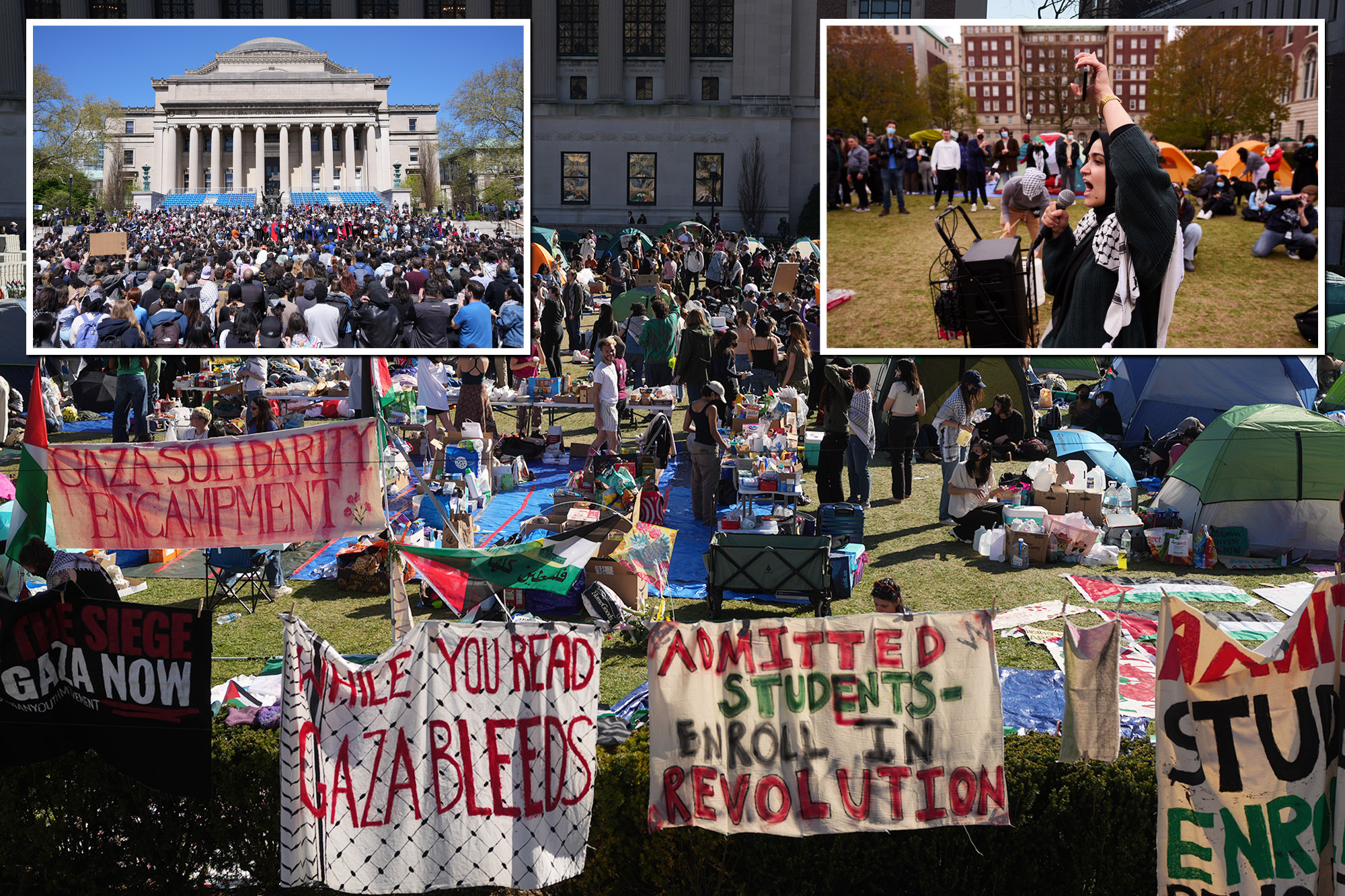
Columbia University has announced that classes at its main campus will be held remotely for the final weeks of the semester — prompting backlash against the “weak” administration for allowing anti-Israel student protesters to “in essence” shut down the college.
“It’s vital that teaching and learning continue during this time. We recognize conditions vary across our campuses and thus are issuing the following guidelines,” provost Angela Olinto wrote in a Monday night notice to students and faculty as the anti-Israel encampment on campus neared the seven-day mark.
Classes on the university’s Morningside Heights campus will be hybrid – “technology permitting” – through the end of the Spring 2024 semester on April 29, the letter said.
Faculty without the means to provide hybrid classes were urged to consider the fully-remote option, and to “provide other accommodations liberally” in the final days of the semester.
“Safety is our highest priority as we strive to support our students’ learning and all the required academic operations,” Olinto wrote.
Former White House Press Secretary Ari Fleischer slammed the decision to move to hybrid classes for the end of the semester, writing that “‘’protesters’ have in essence shut down Columbia University.’”
“It’s terrible how weak the school’s leaders – and especially its faculty – are,” Fleischer wrote on X. “The school should be fully open (no remote classes) and students who disrupt other students should be expelled.”
Classes at Barnard College – the historically women’s college affiliated with Columbia – are still in-person, the Columbia Daily Spectator noted.
Columbia and Barnard held remote classes on Monday to “deescalate the rancor” on campus, university President Manouche Shafik announced early that morning.
“I am deeply saddened by what is happening on our campus. Our bonds as a community have been severely tested in ways that will take a great deal of time and effort to reaffirm,” Shafik wrote.
Meanwhile, the college appeared to be beefing up security on its main campus.
One security guard said that the university’s contractor, Apex Security Group Inc., was recruiting more workers for its 7 p.m. to 7 a.m. shift at a rate of $240 a day.
“It’s my first day. We need it,” the worker told The Post.
Columbia became the nexus of pro-Palestinian efforts on campuses across the country last Wednesday, when a tent setup emerged on one of the lawns in front of Butler Library.
Jewish students reported feeling unsafe due to the antisemitic language of some of the protesters and their supporters who gathered outside the campus gates.
“We’re all Hamas…Long live Hamas!” one off-campus agitator could be heard yelling in a video posted on X by the watchdog Stop Antisemitism.
On Thursday, Shafik took the extraordinary step of requesting the NYPD enter the campus and break up the protest, which resulted in the mass arrest of over 100 participants.
The move immediately drew backlash from the pro-Palestinian students’ supporters and faculty members – while others insisted that the university is still not doing enough to protect Jewish students from harrassment and harm.
The arrests also sparked a series of similar encampments at other universities, including Yale and NYU.
New York Gov. Kathy Hochul stopped by the Morningside Heights campus Monday, where she met with university officials and the NYPD about the public safety crisis.
“The recent harassment and rhetoric is vile and abhorrent. Every student deserves to be safe,” she shared on X.
Also on Monday, New England Patriots owner Robert Kraft announced his bombshell decision to withhold donations from the school due to the recent unrest.
One of Kraft’s many past contributions to his alma mater was the Kraft Center for Jewish Life, home to Columbia and Barnard’s Hillel.














